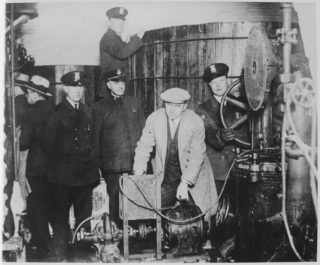 Asset forfeiture is a serious concern for cannabis businesses across the United States. The government has the authority to seize assets involved in the manufacture, importation, sale, or distribution of a controlled substance, such as marijuana, and in the past decades it has not shied away from using this power. What’s more, property seized by the government under suspicion of criminal activity does not have to be returned even if a conviction is never obtained. For cannabis business owners, this can mean losing their homes and cars. But even investors and landlords involved in cannabis businesses are subject to risk. For investors, they risk seizure of any investments or loans made to the cannabis business. And landlords leasing to cannabis businesses are at risk of having their property seized.
Asset forfeiture is a serious concern for cannabis businesses across the United States. The government has the authority to seize assets involved in the manufacture, importation, sale, or distribution of a controlled substance, such as marijuana, and in the past decades it has not shied away from using this power. What’s more, property seized by the government under suspicion of criminal activity does not have to be returned even if a conviction is never obtained. For cannabis business owners, this can mean losing their homes and cars. But even investors and landlords involved in cannabis businesses are subject to risk. For investors, they risk seizure of any investments or loans made to the cannabis business. And landlords leasing to cannabis businesses are at risk of having their property seized.
Recently, however, certain events have signaled a possible shift in asset forfeiture cases. The federal government dropped its asset forfeiture case against Harborside Health Center after a four-year long court battle. The dismissal was a big win for the cannabis industry and a hopeful sign that federal asset forfeiture cases targeting marijuana businesses could end in California under new federal policies. The U.S. Congress also extended the Rohrabacher-Farr amendment under the 2016 omnibus appropriations bill, which prohibits the Department of Justice from using federal funds to prosecute state-law compliant medical marijuana patients and businesses in regulated states.
Though the possible shift in federal enforcement is a welcome sign, current federal policies do not address asset forfeitures cases for recreational cannabis. With California voting to legalize recreational cannabis this November, the risk of asset forfeiture still looms. In addition, state and local governments also have the ability to seize property of marijuana businesses. Under current California law, any and all property involved the manufacturing or distributing of marijuana is subject to asset forfeiture. The law requires the state or local agency to prove by clear and convincing evidence that the property is subject to forfeiture in actions involving cash of at least $25,000, however, California law enforcement have been able to get around this threshold by receiving shares of property seized by the federal government.
Thus, in September, the California legislature made a bold move to reform asset forfeiture laws by passing Senate Bill 443 (SB 443) to reduce the risk of unfair property seizure by state and local law enforcement beginning January 1, 2017. The bill establishes some of the nation’s strictest standards to protect the due process and property rights of California cannabis business owners, investors, and landlords.
Under SB 443, state and local law enforcement cannot transfer any property seized under state law to a federal agency. In addition, the state agency must obtain a criminal conviction for the illegal manufacture or cultivation of marijuana in order to receive a share of federally seized property, including houses, vehicles or cash under $40,000. A criminal conviction is also required for a state agency to recover any of it expenses for the seizure and destruction of marijuana. Finally, the bill raises the burden of proof for state agencies under existing law, requiring clear and convincing evidence to seize cash of $40,000 or more, and evidence beyond a reasonable doubt to seize cash of more than $25,000 but less than $40,000.
The bill is not specific to medical cannabis and thus if recreational cannabis use passes in California this year, it will also serve to lessen the risk of asset forfeiture for recreational cannabis businesses. SB 443 was approved by California Governor Brown on the same day as AB 2679, which created protections for current California cannabis manufacturers. The state of California seems to be covering its bases as it gears up for state licensing of medical (and possibly recreational) cannabis businesses in 2018, and as a result, it is a better time than ever to operate a cannabis business in the Golden State.























